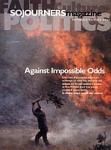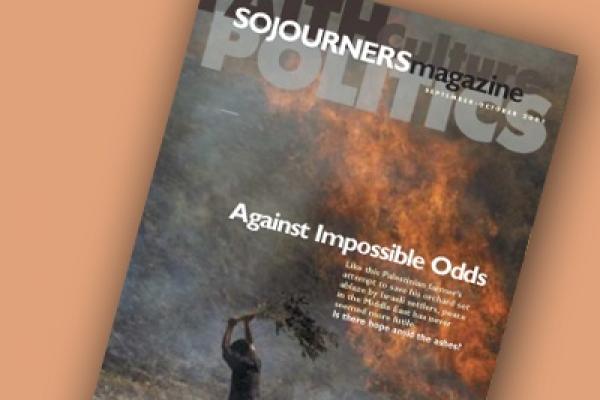Nearly 200 international Jewish activists gathered in Chicago this past May for the Jewish Unity for a Just Peace, or Junity, conference. Their primary message: There is significant and growing Jewish movement to end the Israeli occupation of the Palestinian territories seized in 1967.
This movement crosses all Jewish denominations and includes Jews who are religious and those who identify as secular; Zionist, non-Zionist, anti-Zionist Jews; women and men who range in age from young students to senior citizens. While the adage "two Jews means three opinions" could certainly describe the diverse make-up of Junity, everyone managed to focus attention on one point of clear agreement: A just peace for Palestinians and Israelis alike is not possible until Israel ends the occupation.
The Junity organizers chose not to endorse any particular solution to the current crisis between Israelis and Palestinians. Instead they focused on a campaign of activism and education to end the occupation. Junity makes clear that it supports neither Palestinian nor Israeli violence, and many organizers and participants expressly condemn all violence against civilians, including Palestinian attacks on Israelis.
But other members believe that Jews ought not tell Palestinians how to resist an unlawful occupation; that Palestinians have a right under international law to resist with force; or that condemning both sides obscures the great power imbalance between Israelis and Palestinians. So Junity chose not to make any official statement on violence other than that an end to the occupation is key to ending the violence from both sides and to achieving security for all.
"Jews are committed as Jews, based on our Jewish values, to come together to organize against the occupation," said conference chair Steven Feuerstein. "We have no tolerance for persecution of others-a lesson from being persecuted ourselves."
Rabbi Rebecca Lillian, a member of the Reconstructionist Rabbinical Association, is active in Chicago's Jewish Peace Forum. Contact Junity at PMB 206, 2859 Central St., Evanston IL 60201; (312) 409-4845; www.junity.org.

Got something to say about what you're reading? We value your feedback!
